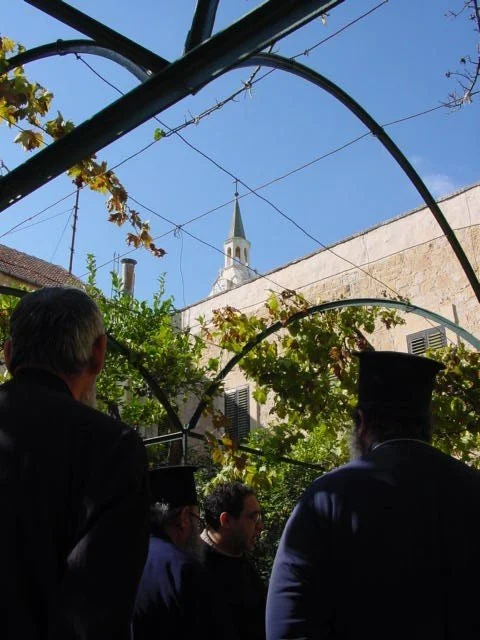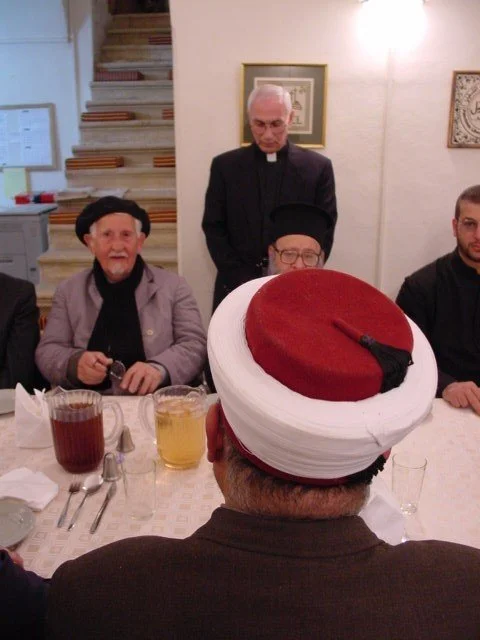November 26, 2002
Praying together as an ecumenical Christian group.
On the roof of the monastery, site of our retreat.
A tour of the Ein Kerem monastery.
The second and final day of the retreat began in prayer, followed by a brief tour of the monastery - it is a beautiful place, as one would suspect from the Franciscans. We finished the tour on the roof of the monastery overlooking the village. From there, we could see the spires of the Russian Orthodox convent and Greek Orthodox church, as well as the mosque. Once an Arab village that was overwhelmingly Christian, Ein Kerem is now almost thoroughly Jewish. The churches are maintained by their respective communities, and one Arab family remains from the once-thriving Roman Catholic community. In 1948, they stayed. Everyone else evacuated, hoping to return soon, but citizens of the new State of Israel arrived first, and finding the homes vacant, squatted there. The temporary situation became permanent, as it did in most of the Arab villages West of Jerusalem (and throughout what is now Israel).
The afternoon was spent trying to produce practical programs for the ideas we had discussed in terms of Muslim-Christian dialogue. Perhaps a youth conference, or a laity retreat, will follow soon.
Back at Sabeel, breaking the Muslim fast as an interfaith practice.
In the evening (evening comes early here), we returned to Sabeel in time for a Christian-Muslim ftuur, the meal that breaks the daily Ramadan fast. Christian and Muslim leaders sat around the table at this feast which has become a regular feature in the Middle East. Tradition attributes this interfaith act as a fairly new practice, introduced by the Coptic (Egyptian Orthodox) Pope Shenudah some fifteen years ago. It has become familiar here.
Meanwhile, back in Zababdeh, the Tubas students were absent again. The teachers from that nearby village managed to come, though, again riskily breaking curfew to do so. The dedication to education here is remarkable.
Marthame and Fr. Thomas made their way to the Old City, hosted by Bishop Timotheus in a pension near the New Gate. Given our early departure tomorrow (and the absence of a TV to catch up on the news), an early night is in order.




